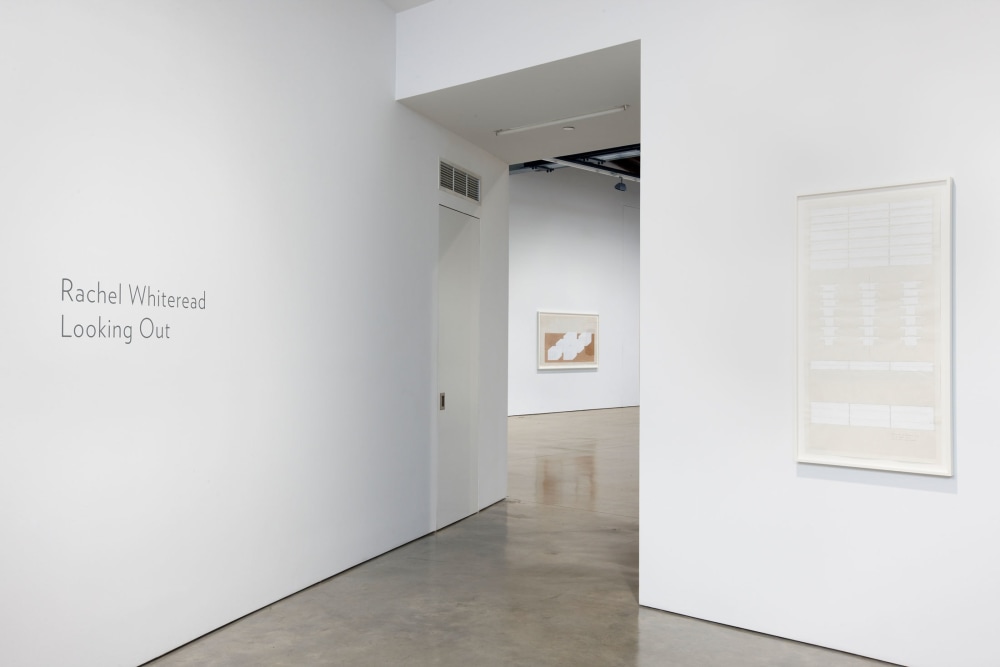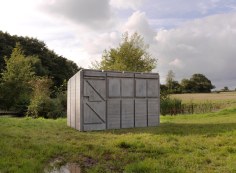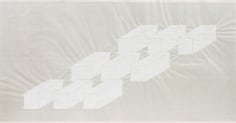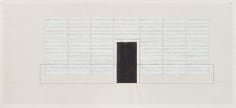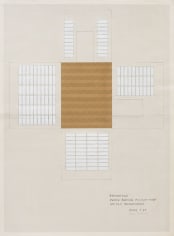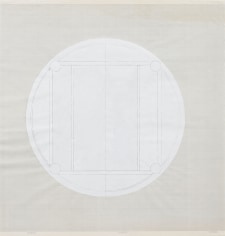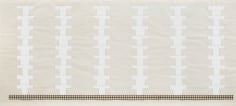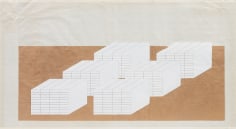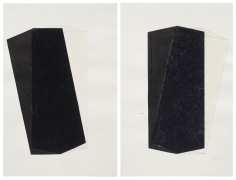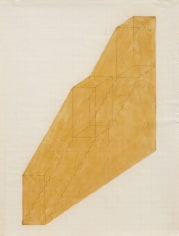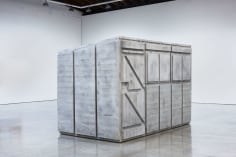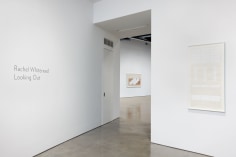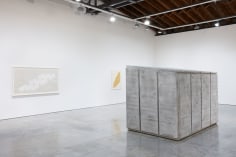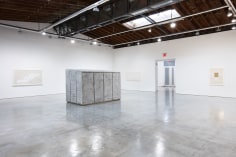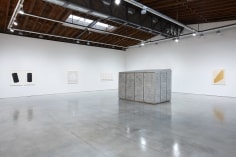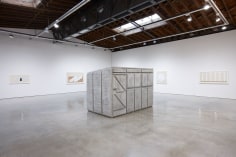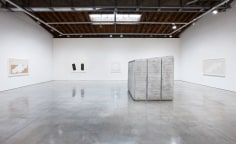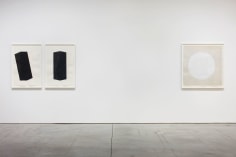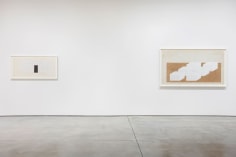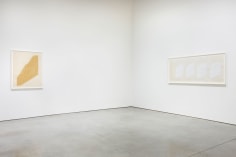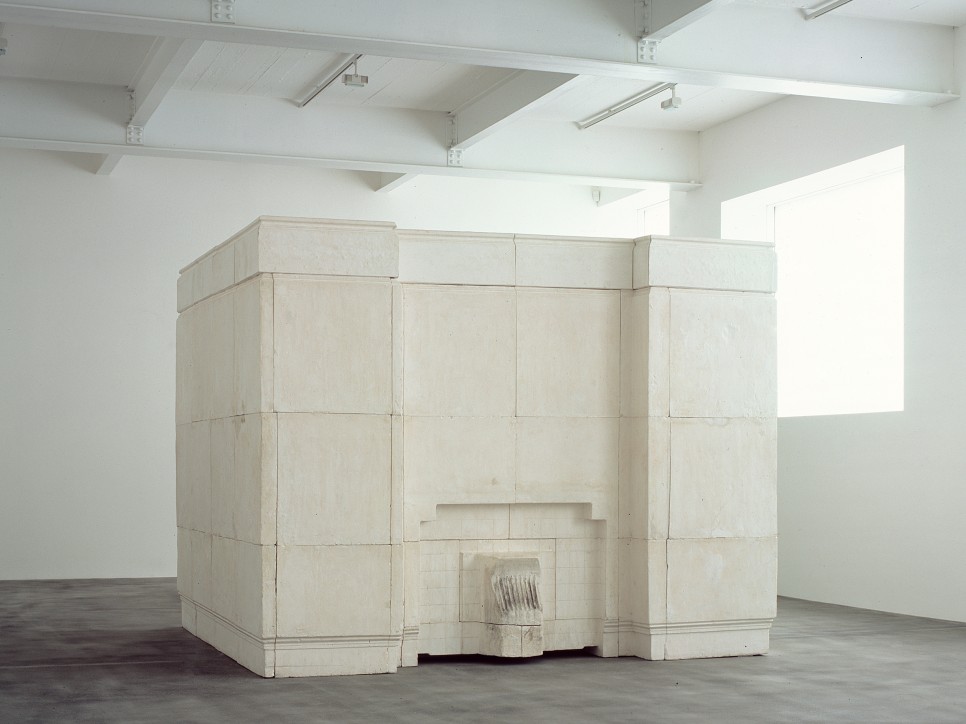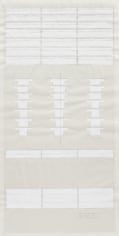
Luhring Augustine is pleased to present Looking Out, an exhibition of early works on paper and recent sculpture by Rachel Whiteread. This marks the artist’s ninth exhibition since the gallery began representing her in 1991. The gallery will present a second exhibition with Whiteread entitled Looking In at our Chelsea space from November 7th through December 19th.
Rachel Whiteread is one of the preeminent artists of her generation. She is best known for casting the spaces inside and around objects, be they bathtubs and mattresses, architectural elements such as doors, floors and windows, or entire buildings. Whiteread uses materials such as resin, rubber, concrete and plaster to preserve each surface detail, and the resulting sculptures are remarkably faithful to their source molds, but also uncannily foreign in that they represent an inverse of the original object and require a constant reorientation of perception. Absence is made present, interior becomes exterior, and the invisible is rendered visible.
In foregrounding that which is unseen, Whiteread often focuses on the domestic and prosaic. Detached III is a concrete and steel sculpture cast from a prefabricated, wooden garden shed. It recalls previous monolithic works such as Ghost (1990) and House (1993) to the more recent The Gran Boathouse (2010), a cast of a local boathouse that sits on the water’s edge in Røykenviken, Norway. The latter represents the first in a series of “shy sculpture” – works cast from unassuming structures and situated in remote locations. Detached III continues in this vein with its humble origins, its modest proportions, and its quiet dignity. The title alludes to a shed’s status as a building that is separate, and more broadly, to an artist’s position as one who deliberately secludes herself from the world in order to reflect upon it.
Though regarded primarily as a sculptor, Whiteread has always maintained a vital drawing practice. The works here consist of several large-scale drawings from the 1990s, many of which reference specific projects. While such drawings are helpful to the artist in thinking through complicated installations, they are not considered studies, but works in their own right and are collectively referred to as a kind of diary. They have a wonderful sense of materiality and weight, due to particular media such as correction fluid, which has a chalky quality akin to plaster as seen in Book Corridors (1997), and varnish, which recalls the translucency of her resin and rubber works as seen in Untitled (Stairs) (1995). The consistent use of graph paper grounds the drawings even further, and reflects the balance and precision with which Whiteread approaches all of her work.
Rachel Whiteread (b. 1963) was born in London, England where she currently lives and works. She studied painting at Brighton Polytechnic and sculpture at the Slade School of Fine Art. Whiteread was the first woman to win the Turner Prize for her public sculpture House (1993) and represented Great Britain at the 47th Venice Biennale (1997). Important commissions include Holocaust Memorial (2000) in Vienna, Tree of Life (2011-2012) for the Whitechapel Gallery in London, and a new permanent sculpture for Governor’s Island in New York to debut in the spring of 2017. Her works are in several prestigious collections including the Museum of Modern Art, New York, the National Gallery of Art, Washington D.C., the Stedelijk van Abbemuseum, Eindhoven, the Tate, London and the Centre Pompidou, Paris. A major retrospective exhibition of Whiteread’s work is being organized jointly by the National Gallery of Art, Washington, DC, and Tate Britain, London and will open in the fall of 2017.

